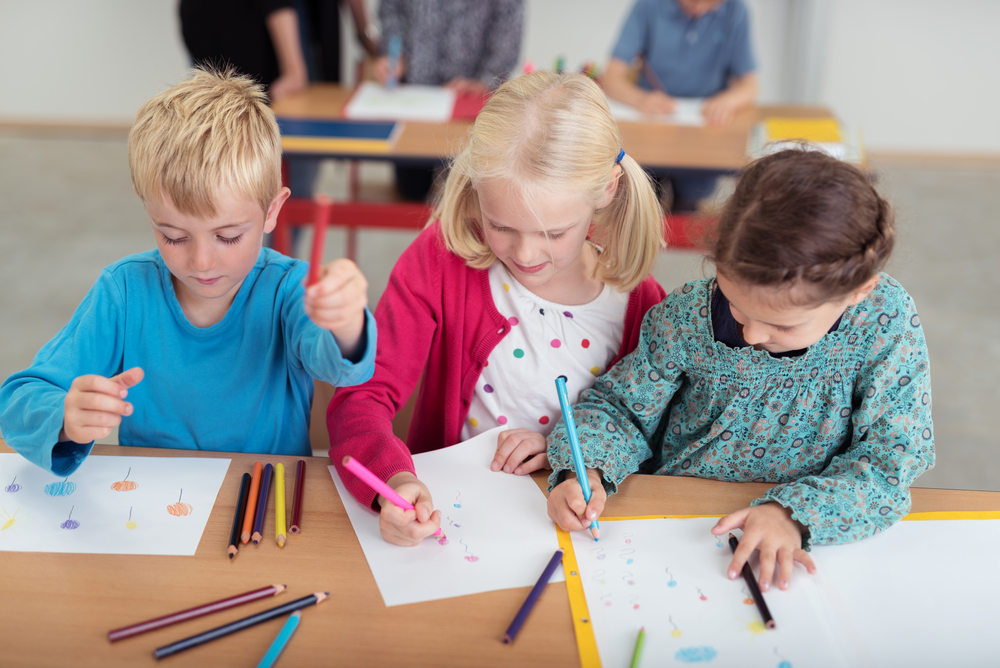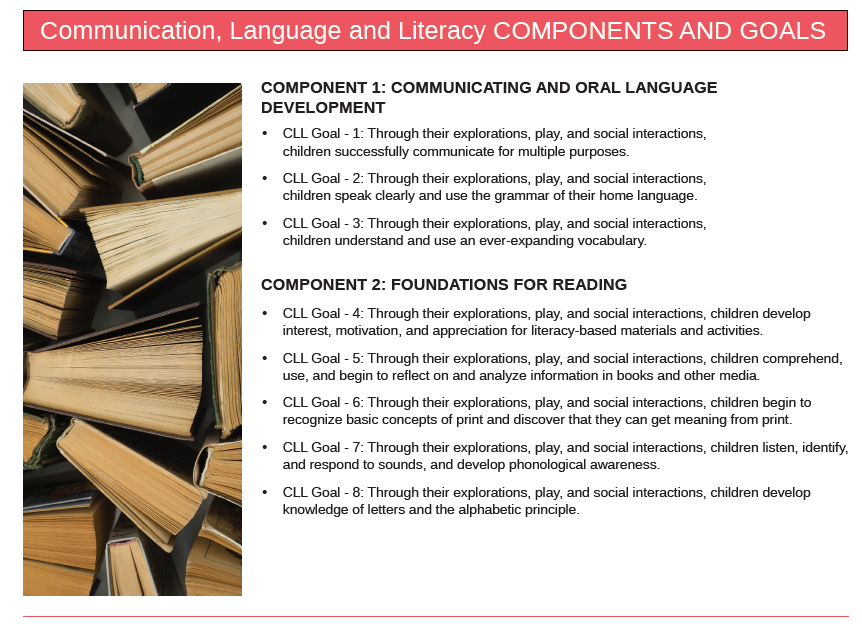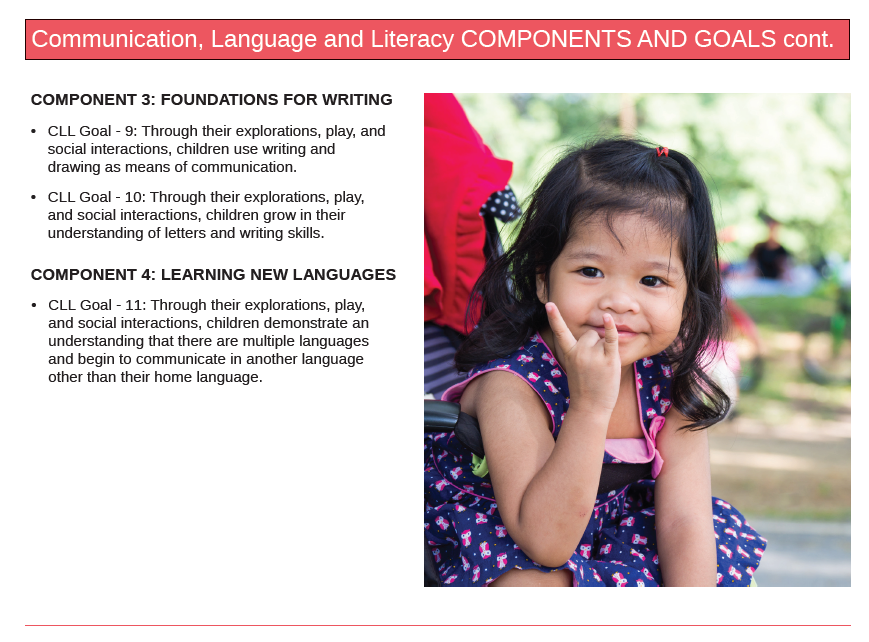
Communication, Language & Literacy (CLL)
Communication, Language and Literacy Domain
From birth, children are learning language and developing the ability to communicate. The Communication, Language and Literacy domain describes many important aspects of children’s language and early literacy development.
Communication
Language development begins with children’s ability to understand what others are communicating to them. Infants and toddlers understand more words than they can say. Children learn the meaning of words and other forms of communication first. They gradually learn to express themselves, starting with the ability to express their needs through crying, gesturing, facial expressions, and later using words. By the time they are preschool-age, most children have developed a large vocabulary and are learning the rules of language such as grammar.
Adults build nurturing relationships by paying close attention to what children are trying to communicate. By responding consistently to children’s communication, they become good communicators. This is especially important for infants and toddlers as they learn first how to communicate nonverbally and then with words. Adults also promote communication skills and early literacy skills as they talk with, read to, and sing with children of all ages. Children learn that reading and writing are important as they see adults using these skills in everyday routines. Adults can point out letters, help children follow print, and play games to introduce early literacy concepts such as the sounds included in words. Technology and interactive media can be used to help children record their thoughts in pictures and words which are important aspects of early writing skills. Children learn early literacy skills best while participating in daily routines.
Adults working with children who have disabilities may need to provide extra support when children are communicating with others. They may need listening devices to help them hear so that they can learn the sounds, words, and expressions used in language. They may need therapy or assistive devices to help them communicate clearly. Adults should communicate with and observe young children carefully to determine if they are picking up communication skills early on and seek additional assistance if a child is delayed in this area.
New Languages
As children are learning the language their family speaks, it is also a good time for them to begin learning to speak another language. Brain research clearly shows that learning new languages is much easier if children begin early in life. During the first years of life, connections are being formed in the brain. When children hear the sounds of language, they form connections in the brain that expand the potential for further learning in that language. If children do not hear a language in the early years and form these connections, it will be much harder for them to learn it later. There are many advantages to learning a new language, including stronger cognitive abilities such as flexibility in thinking, greater sensitivity to language, and better listening skills. In addition, learning a new language improves a child’s understanding of native language. Therefore, the SD Early Learning Guidelines elevates the value that preschoolers have opportunities to begin to learn a new language, which ideally would be a language that is used in their community. For instance, if there are a large number of Spanish speakers in the community, Spanish would be a natural choice as a new language that children begin to learn. Sign language can also be readily included in daily routines.
Dual Language Learning
Children whose families speak a language other than English at home may be learning English as a new language. The guidelines refer to this type of language learning as Dual Language Learning (DLL) because children are learning to communicate in their home language and in English. Children who are Dual Language Learners need to continue to learn and speak their family’s language because learning their home language lays the foundation for learning English plus they will learn other concepts more easily. These children will probably demonstrate progress on the guideline goals in their home language, so it is important to encourage children and their families to continue to use their home language while they are learning English.
Literacy Skills
Children also learn many important early literacy skills as they grow and develop. Young children build their foundation for reading and writing as they explore books, listen to songs and nursery rhymes, hear stories, and begin to draw and scribble. Preschool-age children learn to follow along as someone reads to them, remember familiar stories and talk about them, learn the names of the letters of the alphabet, and begin to be more intentional about what they draw and scribble. Children also develop phonological awareness as they play with the sounds of language. All of these characteristics and skills are important because they lay the groundwork for children to become successful readers and writers in elementary school. Given a good early foundation some children develop these characteristics before entering kindergarten while others may develop them later.


Component 1: Communicating and Oral Language Development
Component 2: Foundations for Reading
Component 3: Foundations for Writing
Component 4: Learning New Languages